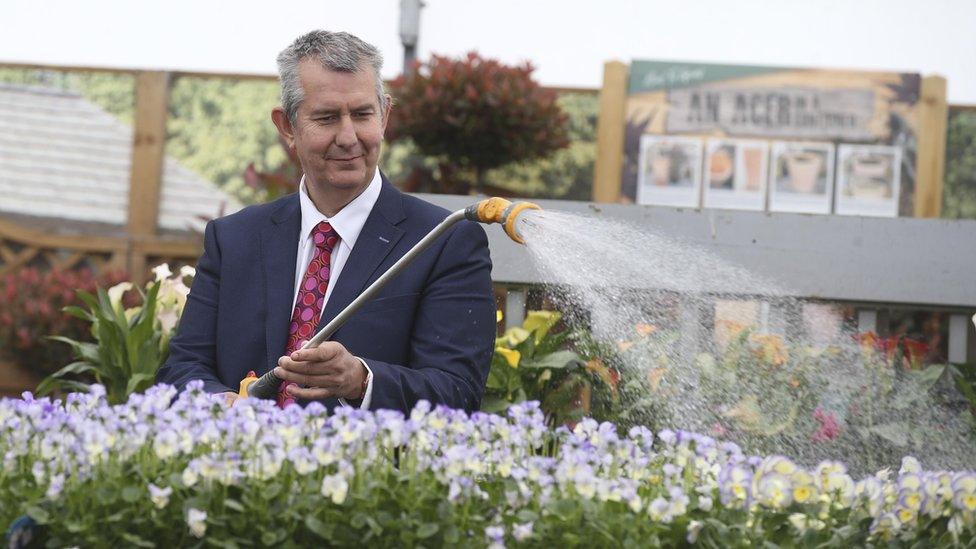NI Climate bill would devastate rural economy -Poots
- Published
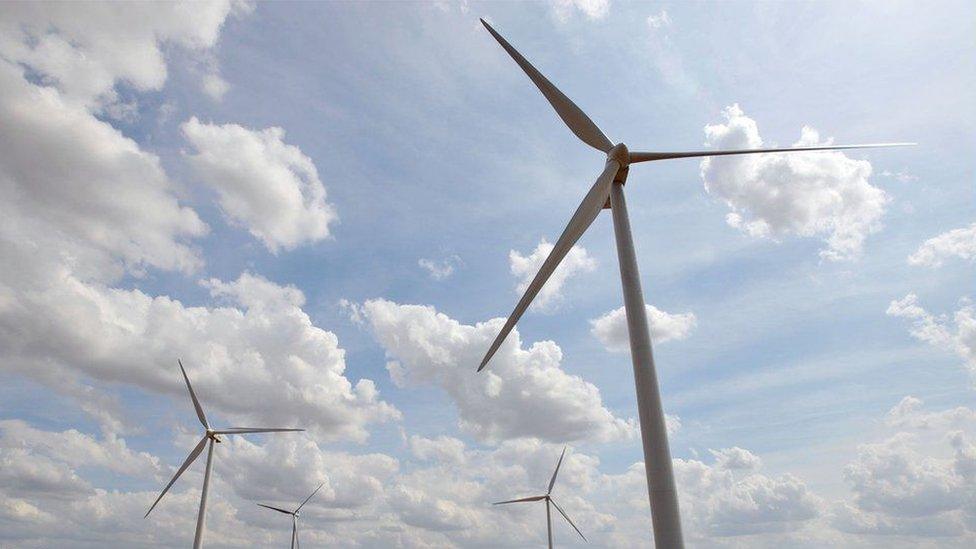
Northern Ireland's first ever climate bill would "decimate" the agri-food industry, Edwin Poots has said.
The agriculture minister said the bill would cause "devastation" to the rural economy.
But Green Party leader Claire Bailey told BBC News NI's The View that the bill was vital to help protect humanity from climate change.
The bill sets a 2045 net zero greenhouse gas emissions target for Northern Ireland.
It establishes a legal framework including five-year plans for emissions cuts.
Earlier this year, Stormont assembly members voted 58 to 29 in favour of moving the bill to its next stage.
The Democratic Unionist Party, of which Mr Poots is a member, opposed the bill, along with the Traditional Unionist Voice.
Sinn Féin, Alliance, the SDLP, the Green Party, Ulster Unionists, and several independents backed it.
Speaking on The View, Mr Poots said supporters of the bill were "prepared to wipe out jobs in farming and factories" and its implementation would cost an extra £900m per year on top of existing climate proposals.
"I won't see the rural economy walked over by people who don't understand it," he said.
The bill does not specify the level of reductions required in various sectors like agriculture, transport and energy.
As the sector which emits most greenhouse gases, the farming sector fears it will be disproportionately affected.
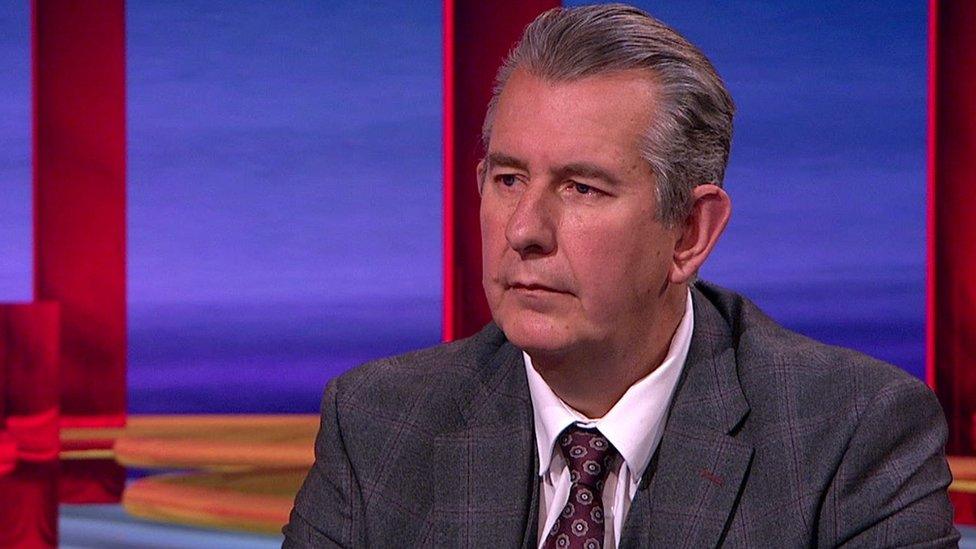
Edwin Poots says the DUP is "taking the scientific approach".
Mr Poots said the Climate Change Committee and other scientists backed up his position.
The Climate Change Committee said it suggested a reduction of at least 82% in emissions by 2050 given Northern Ireland's economic reliance on agriculture.
It said that would be a fair contribution to a wider UK net zero target.
"The fact that we provide high quality food for about 10 million people across the rest of the United Kingdom is something that the independent scientists have taken into account," Mr Poots said.
"It would appear that the drafters of this bill haven't taken it into account and wish to impose something which would actually decimate the agri-food industry.
"We're taking the scientific approach to this as opposed to having some wish list," he added.
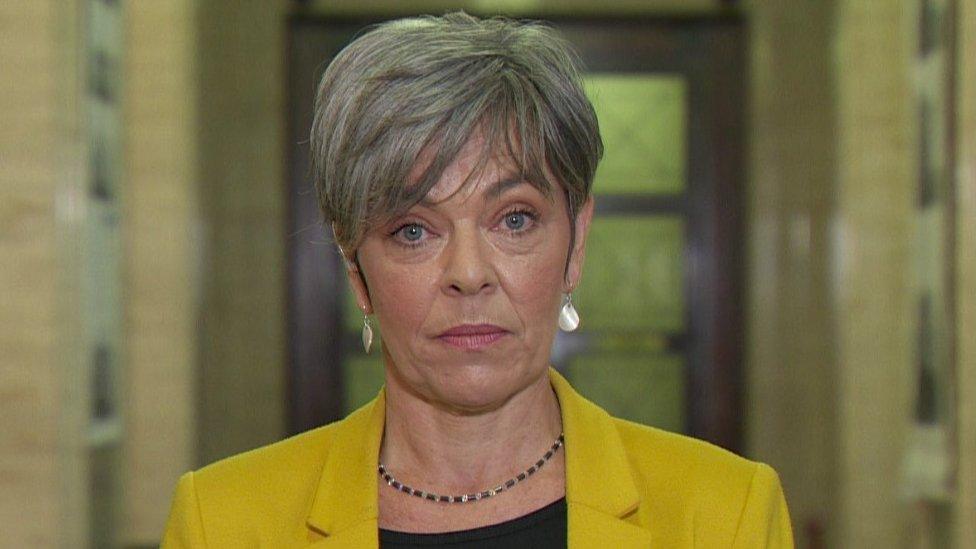
Clare Bailey says the Climate Bill's net zero target is based on "the best available science"
But Green Party leader Clare Bailey, who sponsored the bill, said science told us "we are at code red for humanity".
"We are at the tipping point, the point of irreversible damage," she said.
Ms Bailey said the climate bill's net zero target was based on "the best available science".
"We've seen other UK regions have all embedded a net zero target in their specific climate legislation," she said, adding that the Irish government had also committed to net zero greenhouse gas emissions.
"We need to move far, we need to move fast, we need to understand the urgency of mitigating against what's coming down the line at us," she said.
She said Mr Poots had acknowledged the agri-food sector was Northern Ireland's biggest emitter yet still wanted to intensify food production.
"That's not carbon action, that's carbon illiteracy," she said.
You can watch the interviews in full on The View on BBC One Northern Ireland from 10:40
Related topics
- Published10 May 2021
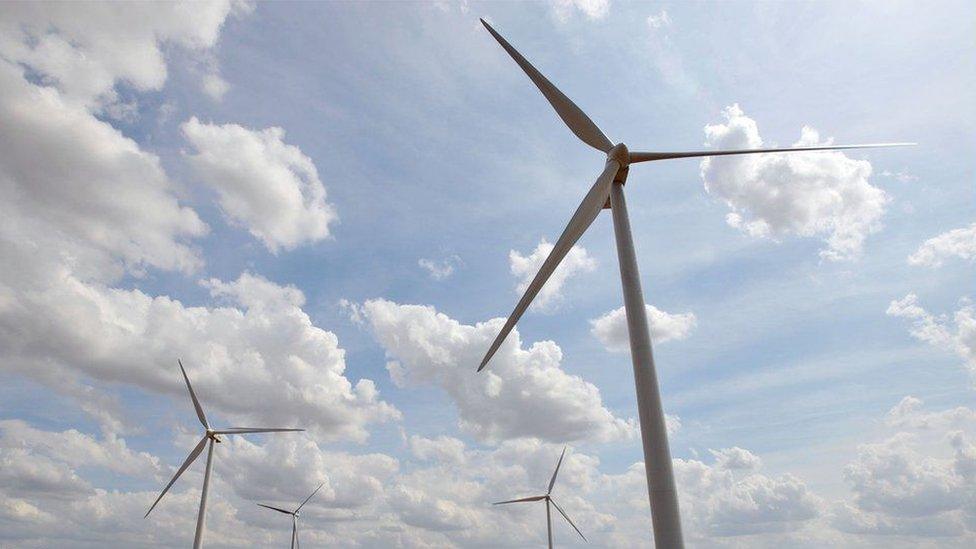
- Published27 March 2021
